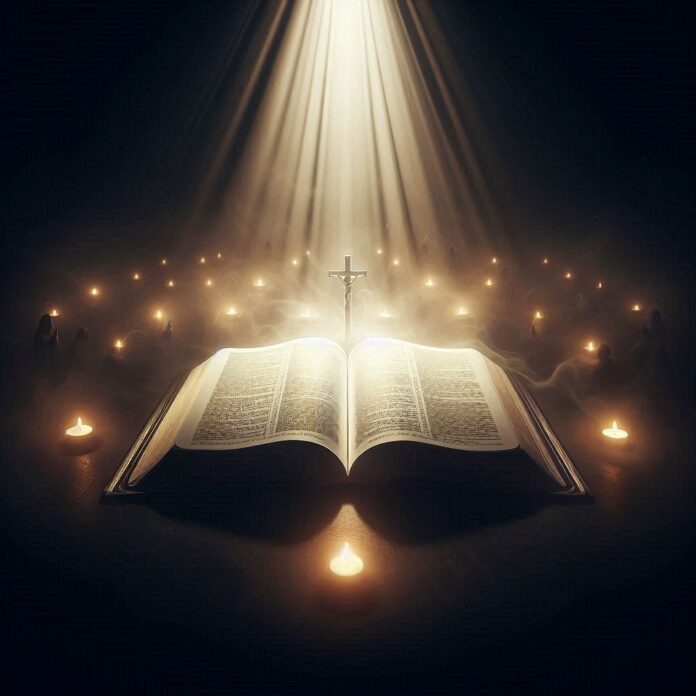It has become something of a sport in recent years to explain away atheism with armchair psychology. In a recent interview, Lee Strobel, a Christian apologist for whom I have great respect, attempted just that in a conversation with pro-life activist Lila Rose titled “What All Famous Atheists Have In Common.” He proposes that most famous atheists — Camus, Nietzsche, Sartre, Freud, Voltaire, et cetera — share a singular biographical defect: they lacked strong father figures. And this, we are told, made the concept of a heavenly father intolerable to them. To quote Strobel, himself referencing the work of psychologist Dr. Paul Vitz: “the implication is if your earthly father has abandoned you or disappointed you greatly or whatever, you don’t want to know about a heavenly father because he’s only going to be worse. He’s only going to hurt you worse.”
Daddy issues, writ large.
Now, there may be something to this. There usually is, with Freud. But the idea that disbelief is merely displaced grief strikes me as too neat by half. It also flatters the believer, suggesting that if only the unbeliever had been properly loved, he too would have come running to the cross. I detect something more unnerving at play here, something less sentimental and more subversive. It’s not that these men longed for a father and couldn’t find one, or felt abandoned by one. It’s that they never learned to obey one in the first place.
That, I suspect, is the true common denominator. Not the absence of affection, but the absence of authority. A child raised without a father — or with one who is ineffective, absent, or just outright weak– does not merely suffer emotional harm. He grows up unfamiliar with rules, with structure, with the idea that someone might tell him “no” and be right to do so. It is no coincidence that fatherlessness correlates with crime, failure, and dysfunction by orders of magnitude. Why should spiritual rebellion be any different?
Atheism, especially in its modern form, is not so much a conclusion as it is a preference. It is the insistence that no one — not man, not state, not God — has any legitimate claim over me. That I am answerable only to myself. Consider perhaps the most famous modern atheist, the late Christopher Hitchens. His father, a naval officer, was by all accounts emotionally distant, weakened by humiliation, and ultimately betrayed by a wife who ran off with another man. Or take Sam Harris, whose father departed when Harris was two and died by the time Sam reached seventeen. These are not mere hard-luck tales. They are upbringings stripped of discipline, of hierarchy, of respect for a strong male authority figure, and of any moral order grounded in something higher than impulse.
And so, when these men later encountered the God of Scripture — not the vague, deistic abstraction who might approve their lifestyle, but the actual lawgiver who commands, judges, and insists upon obedience — they recoiled. Not because He resembled their fathers, but because He dared to be one.
This, more than anything, explains the particular flavor of atheism that thrives among the intellectual elite. The higher the IQ, the more elaborate the rationalizations. The more dazzling the rhetoric, the more polished the excuse. As Lila Rose rightly observed in the interview, it takes a sharp mind to construct an internally coherent worldview from externally incoherent premises. But it can be done. And it often is. Not because the evidence compels it, but because the alternative — submission — is intolerable.
At its core, modern atheism is not a triumph of reason, but a declaration of independence. It is the spiritual equivalent of Rousseau’s “man is born free, and everywhere he is in chains”, minus the humility. It insists, against all evidence and experience, that we are self-made, self-defining, and self-ruling. That we are, in short, God.
Atheists are quick to accuse believers of adopting convenient, feel-good beliefs. “There is a God and he loves me and takes care of me.” That has its allure, undeniably. But so too does “There is no god. I am master of my own destiny, accountable to nobody.”
And so Strobel is right to suspect that something deeper is going on beneath the surface of disbelief. But it is not merely trauma. It is pride. The kind that refuses to kneel. The kind that finds submission more offensive than sin. The kind that would rather build an entire metaphysical system from scratch than admit, simply and humbly, that there might already be a truth we must answer to.
And yet the truth remains: there is a Father — not the feckless or absent ones so many have known — but one who is holy, sovereign, and, yes, commanding. The tragedy is not that these men rejected Him out of pain. It is that they never learned to accept the idea that anyone, not even God, has the right to tell them what to do.
You may also be interested in:


